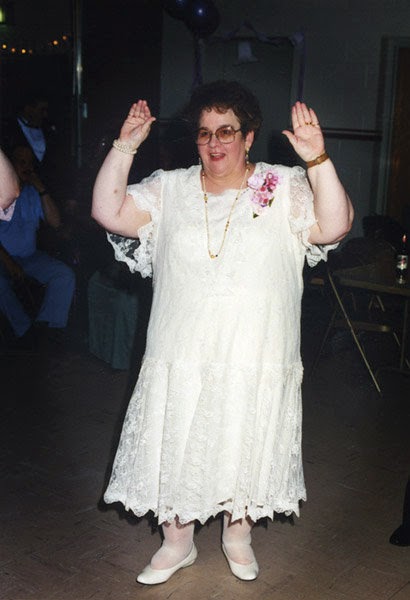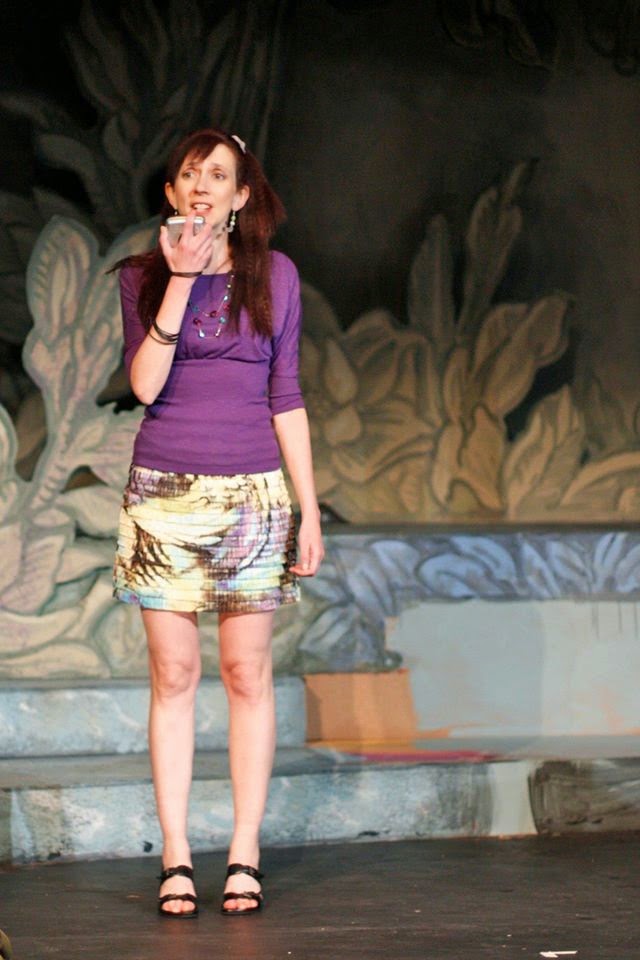Grab That Styrofoam Egg While You Can
In the days following Robin Williams suicide, Facebook (and I imagine other social media outlets but I am stuck in 2010) has exploded. I don't have anything enlightening to add to the conversation/ranting, and I am in no way an expert on suicide or depression. But I would like to suggest that even a life that has such a tragic ending probably (hopefully) had moments of joy, love, and even just contentment and pleasure. After his death, Williams' widow said: "As he is remembered, it is our hope the focus will not be on Robin's death, but on the countless moment of joy and laughter he gave to millions." No doubt that he gave those moments, but let's not forget he experienced some of them, too.
Whether its a job or a relationship or a life, just because it ends in a spectacularly bad or painful way, the ending doesn't negate the reality of the good or even mundane moments that happened. And again, not to minimize the suffering of depression or any illness, but just because a life has pain does not mean there isn't any joy...sometimes occurring at the same time. I think one of my college professors would have called this the "coincidence of opposites." We need to be creative enough to tell life stories for ourselves and each other that feel authentic but also aren't too simplistic. People are rarely simply "good" or "bad," "happy" or "sad."
And yes, I am thinking a lot about my mom, and even my dad, as I write this. This really has nothing to do with depression or suicide, and my parents certainly weren't celebrities or comedians (or only for a very limited audience), but both their deaths have challenged me to tell their life stories in ways that are real and complex. After my mom's death I learned (or finally faced) facts about her life that tempted me to despair it was all suffering and she was never really happy. But I now believe, and it is our unique human power to choose how we give meaning to our experiences, that the happy, funny, sassy, mom I knew was real, too. That also means that I have had to be willing to see that my dad wasn't simply the trouble-laden (although often humorously so) anti-hero of our family stories.
It is a cliche to say you never know a whole person, or you never know what goes on behind closed doors. I agree, but also think that doesn't mean that what you do know of a person isn't real. We never see the whole picture, but that doesn't mean the pieces we know are false. Human beings, and therefore human relationships, are extremely complex and multi-faceted, and so we will only know pieces of "the truth." I think that just makes it all the more vital to pay attention to and really appreciate and value the pieces we do know and experience.
After Robin Williams, or really anybody's death, I also can't help but do "mortality math." I totally agree that, at 63, Robin Williams died way too young, but I also can't help but think he was only one year younger than my mom was when she died. How old is too young to die? Or how old is old enough? Are we, or our loved ones, ever ready to let go? That usually leads me down the path of thinking that, not all that long ago, historically speaking, all of us over 40 would be dead. Then I come back to the wonderful line that Chad got to say as Matt in "Talley's Folly," "Whatever time there is in a life is a lifetime."
And, in my lifetime, I really loved my "Mork & Mindy" board game. I often proclaim that I do not like to play games (only mind games), not because I feel they are silly or I am too morally or intellectually superior to play, but I really am too lazy to learn any rules. (Just like my mom, I do just about anything to get out of reading instructions). Luckily, the Mork & Mindy rules were easy...I just remember we got to yell "Na-nu! Na-nu!" a lot and grab for the styrofoam eggs. The PERFECT game for 10-year-olds' slumber parties. Also, the perfect game for drunken college freshmen parties, until I got too drunk and lost my game in someone's dorm room and was to embarrassed to retrieve it. At least I think that today I am self-confident enough that if I lost such an awesome game, I would own it and call around until I found it. Shazbot.
Whether its a job or a relationship or a life, just because it ends in a spectacularly bad or painful way, the ending doesn't negate the reality of the good or even mundane moments that happened. And again, not to minimize the suffering of depression or any illness, but just because a life has pain does not mean there isn't any joy...sometimes occurring at the same time. I think one of my college professors would have called this the "coincidence of opposites." We need to be creative enough to tell life stories for ourselves and each other that feel authentic but also aren't too simplistic. People are rarely simply "good" or "bad," "happy" or "sad."
And yes, I am thinking a lot about my mom, and even my dad, as I write this. This really has nothing to do with depression or suicide, and my parents certainly weren't celebrities or comedians (or only for a very limited audience), but both their deaths have challenged me to tell their life stories in ways that are real and complex. After my mom's death I learned (or finally faced) facts about her life that tempted me to despair it was all suffering and she was never really happy. But I now believe, and it is our unique human power to choose how we give meaning to our experiences, that the happy, funny, sassy, mom I knew was real, too. That also means that I have had to be willing to see that my dad wasn't simply the trouble-laden (although often humorously so) anti-hero of our family stories.
It is a cliche to say you never know a whole person, or you never know what goes on behind closed doors. I agree, but also think that doesn't mean that what you do know of a person isn't real. We never see the whole picture, but that doesn't mean the pieces we know are false. Human beings, and therefore human relationships, are extremely complex and multi-faceted, and so we will only know pieces of "the truth." I think that just makes it all the more vital to pay attention to and really appreciate and value the pieces we do know and experience.
After Robin Williams, or really anybody's death, I also can't help but do "mortality math." I totally agree that, at 63, Robin Williams died way too young, but I also can't help but think he was only one year younger than my mom was when she died. How old is too young to die? Or how old is old enough? Are we, or our loved ones, ever ready to let go? That usually leads me down the path of thinking that, not all that long ago, historically speaking, all of us over 40 would be dead. Then I come back to the wonderful line that Chad got to say as Matt in "Talley's Folly," "Whatever time there is in a life is a lifetime."




It can be yours again for $20, or a bit more: http://www.ebay.com/itm/Robin-Williams-Mork-and-Mindy-Card-Game-Complete-in-Box-1978-/171418891815?pt=Games_US&hash=item27e95cb627 Lovely thoughts, Amy, and I think you make some important points about not seeing a life only through a veil created by the way it ended. Find joy wherever it is, and don't deny that it exists just because there are also moments of grief or pain.
ReplyDeleteThanks, Kendra! I wish I had heard your MSUS sermon on story...I bet there is much in common.
ReplyDelete